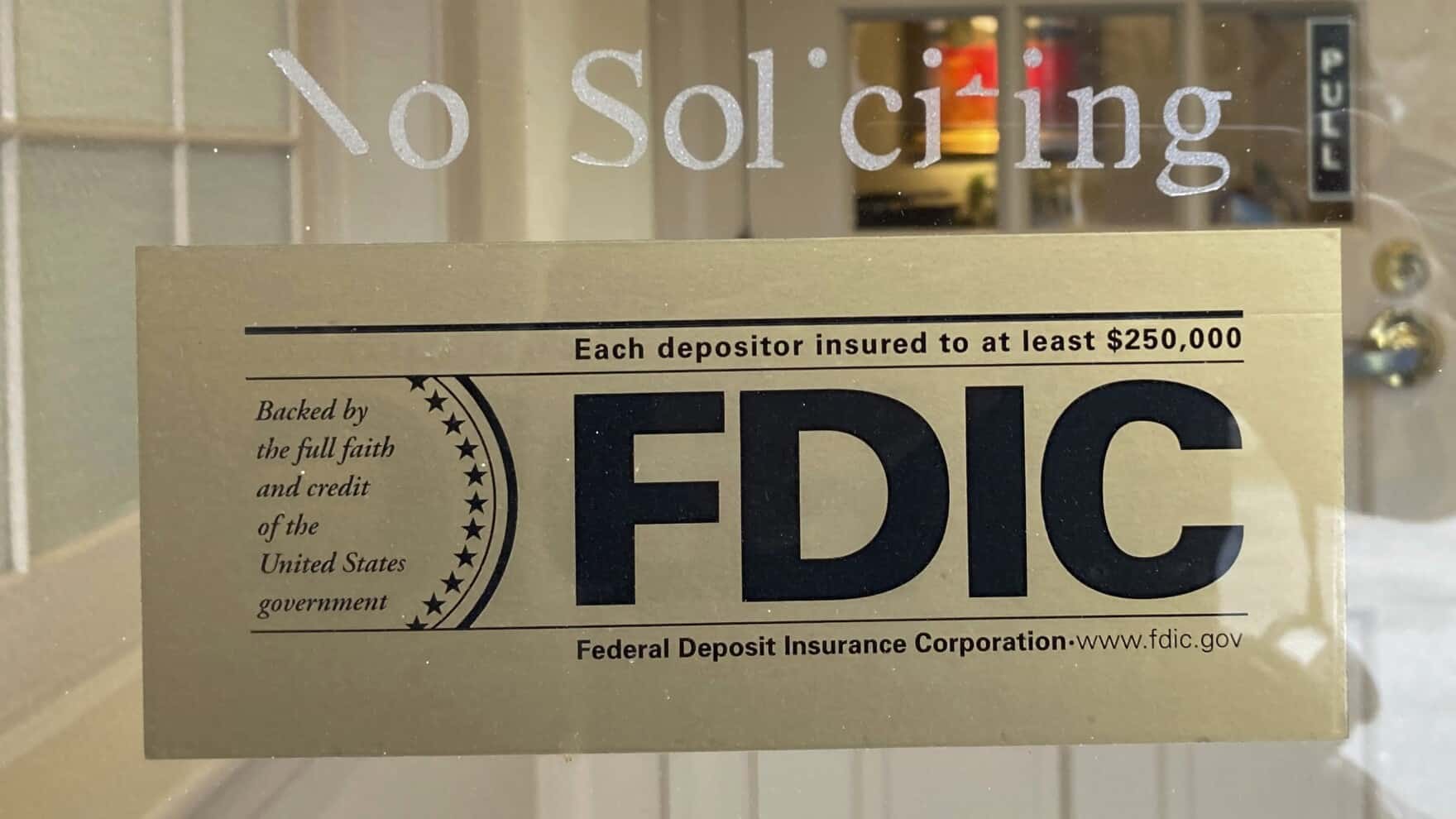What Does FDIC Insurance Mean? Most asked after Silicon Valley Bank Fiasco
Learn about FDIC Insurance and how it can provide financial protection for your deposits with this comprehensive guide. Get all the facts now! Most asked question after the SVB fiasco.

FDIC (Federal Deposit Insurance Corporation) insurance protects your money in the event of a bank failure or other financial crisis. It is important to understand exactly what kind of coverage you have and what is covered by FDIC insurance so that you can feel secure about your deposits. Read on for more information about how FDIC can provide financial protection for your deposits.
The SVB Situation
Silicon Valley Bank's (SVB) failure has raised questions about the Federal Deposit Insurance Corporation (FDIC). SVB had more than 95% of its deposits uninsured, and many of these depositors were startups with more than $250,000 on deposit. The FDIC will cover up to $250,000 per depositor and may be able to begin paying those depositors as early as Monday. However, this amount is insufficient for many businesses with more than that on bank deposits.
The FDIC has created a Deposit Insurance National Bank of Santa Clara County (DINB) to retain all the assets from Silicon Valley Bank for later disposition. As the FDIC sells the assets of Silicon Valley Bank, future dividend payments may be made to uninsured depositors. The FDIC has vowed to fully protect all possible disruptions in service and complete its resolution of Silicon Valley Bank in a manner that fully protects all customers. Unfortunately, the failure of SVB is proving to be a spectacular mess. FDIC deposit insurance does not cover many account holders because they keep more than $250,000.
This situation raises questions about whether the FDIC should increase its coverage limit or whether businesses should spread their deposits across multiple banks.
What is FDIC Insurance?
FDIC insurance is a guarantee by the federal government that your deposits with financial institutions are safe. All banks and thrift institutions in the United States are required to be insured by the FDIC up to a certain limit, usually $250,000 per account holder per bank. This means that if something were to happen to the bank and your deposits were lost, you would be protected.
FDIC insured deposits may include checking, savings, money market accounts and CDs. The FDIC also insures IRAs up to the same limit. You can have multiple active accounts per bank and your insurance limit will not be affected. Moreover, you do not need to apply for FDIC insurance separately; simply by opening an insured deposit account with a participating institution, you become automatically enrolled.
Do All Banks Have FDIC Insurance?
FDIC insurance is a guarantee by the federal government that your deposits with financial institutions are safe. All banks and thrift institutions in the United States are required to be insured by the FDIC up to a certain limit, usually $250,000 per account holder per bank. This means that if something were to happen to the bank and your deposits were lost, you would be protected.
FDIC insured deposits may include checking, savings, money market accounts and CDs. The FDIC also insures IRAs up to the same limit. You can have multiple active accounts per bank and your insurance limit will not be affected. Moreover, you do not need to apply for FDIC insurance separately; simply by opening an insured deposit account with a participating institution, you become automatically enrolled.
How much is insured?
The FDIC insures deposits up to $250,000 per account holder in most cases. Joint accounts are insured up to $250,000 per co-owner, regardless of how many people hold the joint account. This coverage is provided for your protection so you can be sure that if something happened to the financial institution, your money is protected from losses.
The FDIC provides insurance coverage for deposits at banks and other financial institutions, making it one of the most reliable and secure places to keep your money. To be eligible for this insurance protection, the bank or institution must be insured by the FDIC, which means it meets their standards for safety and soundness. Knowing that your deposits are protected by the FDIC can help you feel more comfortable with managing your finances.
How Do I Know if My Bank is FDIC-Insured?
It’s easy to find out if your bank is FDIC-insured. All FDIC-insured banks will have signs in the branch, as well as information on the website and other materials that indicate the institution has FDIC insurance. Additionally, you can search for a specific institution on the FDIC's website to see if it carries FDIC insurance.
FDIC Bank Find tool can help you.
Being insured by the FDIC provides an added level of security to bank accounts and deposits, knowing that regardless of what happens to the bank, up to $250,000 per depositor are safe and protected. Federal law requires all banks that offer deposit accounts to prominently display an official sign at each branch saying that "deposits are federally insured by the FDIC up to a certain limit." In addition, every account opening document should contain information about deposit insurance.
How Does FDIC Insurance Protect Your Money?
FDIC insurance is an invaluable service that helps protect deposits up to a certain amount of money if your bank fails. It does this by guaranteeing that creditors will receive compensation for their deposits in the event of a bank failure. As a result, FDIC-insured banking institutions are the safest places to keep your money since you always have the assurance that at least some of your deposits are safe should anything happen to the bank.
FDIC coverage is available for deposits at almost any type of banking institution, including traditional banks and savings associations as well as credit unions. As long as the deposit accounts are registered in your name, you can request to receive a notification specifying how much of your money is insured by FDIC. To give you even more peace of mind, FDIC insurance also covers accounts owned by businesses and nonprofit organizations, a few select types of retirement accounts, and certain trust accounts. And if you’re looking for added security, some banks offer CDs that come withFDIC backing—so make sure to ask before committing your money to any bank product.
Are Credit Unions safe?
Credit unions are just as safe as banks. Both credit unions and banks are federally insured but by different agencies. Banks are insured by the Federal Deposit Insurance Corporation (FDIC), while credit unions are insured by the National Credit Union Administration (NCUA). The NCUA is a US government agency that regulates and supervises credit unions.
If an institution goes under, some or all of your money may be insured, meaning your funds should be replaced. Credit unions have some advantages over banks. Credit unions are member-owned and cooperative institutions, which means they prioritize their members' needs over profits. They offer fewer account fees than banks, and finding a free checking account at a credit union is easier.
Credit unions also offer competitive interest rates on loans and savings accounts. However, big banks offer more functionality, including websites with various features and highly-rated mobile apps.
In conclusion, both credit unions and banks can keep your money safe. The difference between them boils down to the institutions they cover. Credit unions have advantages over banks, such as fewer account fees and competitive interest rates on loans and savings accounts.
How much does NCUA insure?
The National Credit Union Administration (NCUA) provides $250,000 in coverage for each member's single ownership accounts at federally insured credit unions. The Share Insurance Fund, administered by the NCUA, insures individual accounts up to $250,000. NCUA insurance covers members' accounts at each federally insured credit union dollar-for-dollar, including principal and any accrued dividend through the date. When an insured credit union is liquidated, NCUSIF pays members their shares less any amounts due on outstanding loans.
In Texas, funds on deposit in a credit union are either federally insured by the National Credit Union Share Insurance Fund (NCUSIF) or have private share insurance.
Your money is safe with both insurance
Both the FDIC and NCUA provide each joint account holder $250,000 coverage for their aggregate interests at each federally insured institution. The coverage is separate from and in addition to the coverage available. NCUA and FDIC insurance covers up to $250,000 per account owner per institution per ownership type. The FDIC insures banks, while the NCUA insures credit unions. There are no differences in coverage between FDIC and NCUA for joint accounts.


